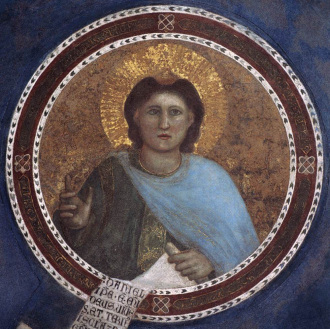The word eunuch is only mentioned, by name, seven times in the KJV Bible. It is found twice in the Old Testament (Isaiah 56:3, Jeremiah 52:25) and five times in the New Testament (Acts 8:27, 34, 36, 38, 39). In the Old Testament, it is derived from a word that means to castrate and, by definition, can reference a chamberlain or minister of state (Strong's Concordance #H5631).
In the New Testament, eunuch is derived from a Greek word that means someone castrated and impotent (Strong's #G2135). If castration of a male occurs before the age of puberty or the gonads are injured, he will most likely not be able to have children or be able to perform sexually.
A man without his ability to procreate can be trusted to guard the king's women or the females in some official's personal harem. Boys in this condition were many times sold by parents or made into slaves. They did this to give their son a life better than they could possibly provide or to have him provide financial support for the family.

The prophet Daniel, who was taken prisoner when the kingdom of Judah was overcome by Babylon's King Nebuchadnezzar, was highly likely one of several eunuchs. Josephus, a historian in the first century A.D., asserted that Daniel, and three others who were also of royal blood and his friends (Meshach, Shadrach and Abednego), were these type of people.
It should be noted that only descendants of Aaron the High Priest who were free of certain kinds of physical defects could offer bread before the Lord at his temple. Such defects (see Leviticus 21:16 - 21) that would render a man unable to offer bread included being lame, club-footed, disfigured or having crushed testicles (the KJV calls them "stones broken").
Biblical Examples of Eunuchs
Scripture does reference a few people who became a Eunuch. Queen Esther (wife of the Persian King Ahasuerus) had one of these men assigned to serve her personal needs. This shows that during her life it was common for the women of the household to be attended by castrated males (see Esther 4:5).
In the early New Testament record, a eunuch was sent by the Queen of the Ethiopians, Candace, to Jerusalem to worship the true God. As he drew closer to the city Philip, a leader in the first century church, was sent to explain the gospel to him. The person was soon baptized (Acts 8:27, 30 - 31).
A High Calling
Jesus, in Matthew 19, taught that some may choose to be like a eunuch (they choose to be single) so that they may dedicate more of their time toward the gospel (Matthew 19:7 - 8, 10 - 12). Those that do so, according to the Apostle Paul, have a higher (and likely more difficult) calling than those who are Christians and married (see 1Corinthians 7).
The idea that a person who was a eunuch could be baptized, draw close to God and eventually be begotten into God's family shows the impartiality of our Father in all things. He has made the way of salvation open to all people regardless of their circumstances (Galatians 3:28) or any defect (either physically or mentally) they may possess.